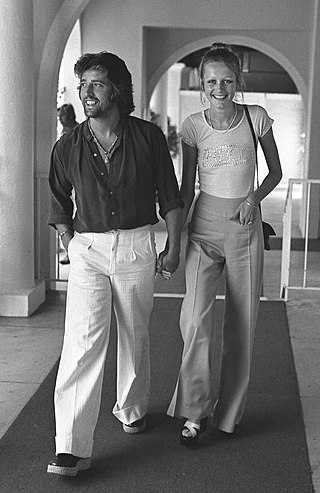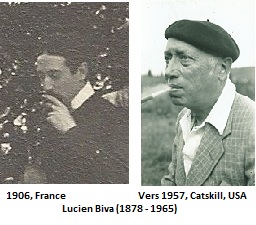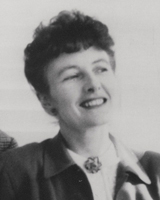
The Fashion and Textile Museum is an English museum.

Justin de Villeneuve is a British businessman, known for being supermodel Twiggy's manager from 1966 to 1973.

Dame Zandra Lindsey Rhodes, is an English fashion and textile designer. Her early education in fashion set the foundation for a career in the industry creating textile prints. Rhodes has designed garments for Diana, Princess of Wales and numerous celebrities such as rock stars Freddie Mercury and Marc Bolan. She has also designed textiles for interiors, featuring her prints on furniture and homewares. In 2003 Rhodes founded the Fashion and Textile Museum in London.

Lilly Reich was a German designer of textiles, furniture, interiors, and exhibition spaces. She was a close collaborator with Ludwig Mies van der Rohe for more than ten years during the Weimar period from 1925 until his emigration to the U.S. in 1938. Reich was an important figure in the early Modern Movement in architecture and design. Her fame was posthumous, as the significance of her contribution to the work of Mies van der Rohe and others with whom she collaborated with only became clear through the research of later historians of the field.

Maija Sofia Isola was a Finnish designer of printed textiles, and the creator of over 500 patterns, including Unikko ("Poppy"). The bold, colourful prints she created as the head designer of Marimekko made the Finnish company famous in the 1960s. She also had a successful career as a visual artist.
Undisputedly the most famous textile designer... at Marimekko

Désirée Lucienne Lisbeth Dulcie Day OBE RDI FCSD was one of the most influential British textile designers of the 1950s and 1960s. Day drew on inspiration from other arts to develop a new style of abstract pattern-making in post-war British textiles, known as 'Contemporary' design. She was also active in other fields, such as wallpapers, ceramics and carpets.

Mary Lillian White later Mary Dening was an English textile designer known for several iconic textile prints of the 1950s. Her designs were very popular and extensively copied in many 1950s homes, as well as in cabins aboard the RMS Queen Mary and at Heathrow Airport. She was also a commercial potter and ceramist, who in the 1960s founded Thanet Pottery, in partnership with her brother David White.
Orla Kiely, OBE is an Irish fashion designer based in London. She began her career designing hats, and moved on to design work on handbags and a variety of other items including kitchenware and cars. She received a master's degree from the Royal College of Art. She worked with several companies before setting up her own business.
Georgina von Etzdorf (RDI) is a British textile designer whose eponymous fashion label was renowned for its luxurious velvet scarves and clothing accessories.
Jhane Barnes is an American designer of clothing, textiles, eyeglasses, carpets and furniture, and the owner of the Jhane Barnes fashion design company. Barnes is known for incorporating complex, mathematical patterns into her clothing designs. She uses computer software to design textile patterns, which then translates the patterns into jacquard loom instructions, which are sent to mills to be woven into fabric.

Lucien Felix Biva was a French–American artist. He studied painting early on with his father, the Naturalist painter Henri Biva. He was also the nephew of the painter Paul Biva. Between 1921 and 1949 he was an ornamental designer for textile fabrics and similar articles of manufacture having surface ornamentation, patenting over eighty designs with the United States Patent Office. He was a member of the Society of French Artists and the Society of Independent Artists.
Wendy Dagworthy OBE is an English former fashion designer and now design academic. During her career she has led fashion design teaching at both the Royal College of Art and Central Saint Martins, mentoring notable fashion designers including Stella McCartney and Hussein Chalayan. An influential designer in her own right in the 1970s and '80s with the Wendy Dagworthy label, and one of the founders of London Fashion Week, she was described by the Daily Telegraph as: "the high priestess of British fashion".

Neisha Crosland is a British-born, London-based textile designer, who works in the fields of furnishing fabric, wallpaper and interiors products. Her designs have featured in the ranges of British brands such as Osborne & Little and John Lewis. Internationally, her work is also recognised and she has a collection for Hankyu department stores in Japan.

Marion Victoria Dorn also known as Marion Dorn Kauffer was a textile designer primarily in the form of wall hangings, carpeting and rugs, however she is also known to have produced wallpaper, graphics, and illustrations. Known for her significant contributions to modern British interiors in particular for her 'sculpted' carpets, she contributed to some of the best-known interiors of the time including the Savoy Hotel, Claridges, the Orion and the Queen Mary. In the late 1930s and early 1940s she created moquette fabric designs for use in London Transport passenger vehicles.

Marianne Strengell was an influential Finnish-American Modernist textile designer in the twentieth century. Strengell was a professor at Cranbrook Academy of Art from 1937 to 1942, and she served as department head from 1942 to 1962. She was able to translate hand-woven patterns for mechanized production, and pioneered the use of synthetic fibers.

Ilonka Karasz, was a Hungarian-American designer, interior decorator, painter and illustrator known for avant-garde industrial design and for her many New Yorker magazine covers.

Marian Pepler was a British architect and textile designer. She specialized in carpet and rug designs producing over 90, often individually named, designs. She was an associate member of Royal Institute of British Architects, she held an Architectural Association diploma and featured on the National Register of Industrial Designers.

Althea McNishCM FSCD was an artist from Trinidad who became the first Black British textile designer to earn an international reputation.

Josefine Pola Stout was an American designer best known for creating fine woolen fabrics. Born in Stryi, she studied with Josef Hoffmann at the Kunstgewerbe Schule in Vienna, and designed for the Wiener Werkstätte before she immigrated to the United States in 1925 with her first husband, architect and designer Wolfgang Hoffmann. Wolfgang and Pola Hoffmann became a prominent interior design team that contributed to the development of American modernism in the early 20th century. They dissolved their successful partnership in 1932, when she married popular mystery author Rex Stout. Pola Stout was an influential textile designer after her second marriage. She was executor of Rex Stout's literary estate after her husband's death in 1975.
Nell Znamierowski was an American textile artist.















